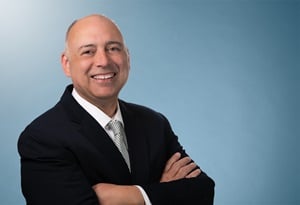Post-Chevron Challenge to Overtime EAP Exemption Pending
Nonprofit Christian School Association’s Challenge to Fair Labor Standards Act Regulations
At a Glance
- The newest version of the U.S. Department of Labor’s overtime rule exemption increases the salary minimum before employees may be considered exempt from overtime pay under the Fair Labor Standards Act’s EAP exemptions. Employers could face significant labor cost increases.
- Though the Association of Christian Schools International’s complaint itself does not mention the Supreme Court’s overruling of Chevron deference in Loper Bright Enterprises v. Raimondo, ASCI appears to have waited to bring this complaint until after that ruling, and ASCI references the precedent in its briefing.
- However, because Loper Bright did not articulate a clear post-Chevron standard, scholars believe that some deference will still apply in practice. As a result, a decision in this case could help industry understand the new contours of administrative law and just how express a grant of authority to an executive agency has to be for its regulations to be upheld. We can likely expect a decision by early 2025.
On August 12, 2024, the Association of Christian Schools International (ACSI), a Colorado-based nonprofit that supports evangelical Christian schools, filed a complaint against the U.S. Department of Labor (DOL) challenging the DOL’s latest promulgation of changes to the EAP (executive, administrative, professional) exemption to the “overtime rule.” See Association of Christian Schools International v. DOL, No. 1:24-cv-02618 (D.D.C. Sept. 17, 2024).
DOL’s 2024 Overtime Exemption Rule
The newest version of the overtime exemption rule (the 2024 Rule) increases the salary minimum before employees may be considered exempt from overtime pay under the Fair Labor Standards Act’s (FLSA) EAP exemptions from $684/week ($35,568/year) to $844/week ($43,888/year) effective July 1, 2024, and to $1,128/week ($58,656/year) effective January 1, 2025. 89 Fed. Reg. 32842; See Final Rule: Restoring and Extending Overtime Protections, Dep’t of Labor (Apr. 23, 2024). It also implements automatic increases every three years beginning in 2025. The increases mean that employers may either have to increase salaries of EAP employees or would have to re-classify those employees as nonexempt. Such reclassification would entitle those employees to overtime pay for time worked in excess of 40 hours a week; to avoid an increase in overtime pay, employers may need to hire additional employees. Either way, employers could face significant labor cost increases.
The Association of Christian Schools International’s Complaint
So, ACSI sued under the Administrative Procedure Act (APA). It argues that the EAP exemption in the 2024 Rule exceeds the authority granted to the DOL by the FLSA to “define and delimit” the term “bona fide executive, administrative, or professional capacity” because the statute does not expressly grant DOL the authority to set “salary” or “compensation” standards for those exemptions.1 In its motion for summary judgment filed on September 17, 2024, ACSI argues that the plain language of the statute means that the DOL can define and delimit the definition of an EAP employee based on job duty only, not salary, and that the DOL’s 85-year history of setting such salary minimums is not a basis to uphold such salary-based restrictions. ASCI also argues that the DOL’s automatic salary increases starting in 2025 violate the APA’s notice and comment period requirements. The matter is currently in summary judgment briefing.
Analysis
Though the complaint itself does not mention the Supreme Court’s overruling of Chevron deference in Loper Bright Enterprises v. Raimondo on June 28, 2024, ASCI appears to have waited to bring this complaint until after that ruling and ASCI references the precedent in its briefing. Incidentally, ASCI also references Justice Kavanaugh’s dissenting opinion in a pre-Loper Bright Supreme Court challenge to the EAP exemption, Helix Energy Sols. Grp., Inc. v. Hewitt, 598 U.S. 39, 61 (2023), which ultimately upheld the exemption, though on different grounds outside of Chevron. Thus, ASCI appears to be more directly attacking the exemption now that Chevron deference is gone. In fact, it argued in its opening brief that the Western District of Texas’ decision in Mayfield v. United States DOL, No. 1:22-cv-792-RP, 2023 U.S. Dist. LEXIS 168054, at *15 (W.D. Tex. Sep. 20, 2023) upholding the 2019 Rule was no longer applicable precisely because Chevron had been overturned. As to the Fifth Circuit’s upholding of that decision on September 11, 2024, ASCI argued that the 2024 Rule was contrary to Justice Kavanaugh’s dissent in Helix. ASCI further distinguished the Fifth Circuit’s upholding of that decision because the 2019 Rule had a much smaller economic and political impact than the 2024 Rule.
ASCI’s argument also relies heavily on a pair of cases from the Eastern District of Texas that the 2016 Rule’s salary level and automatic updating mechanism were unlawful. (See Nevada v. U.S. Dep’t of Labor, 218 F. Supp. 3d 520, 534 (E.D. Tex. 2016) (Nevada I); Nevada v. U.S. Dep’t of Labor, 275 F. Supp. 3d 795, 808 (E.D. Tex. 2017) (Nevada II)). The Eastern District of Texas is currently hearing a similar, consolidated case regarding the 2024 Rule brought by the State of Texas and various industry organizations, including the Plano Chamber of Commerce. See Texas v. Department of Labor, 4:24-cv-00499-SDJ (E.D. Tex.). On the day the Supreme Court overturned Chevron, the Eastern District of Texas granted the plaintiffs’ motion for preliminary injunction citing Loper Bright and its earlier rulings in Nevada I and II. That matter is currently in summary judgment briefing as well.
Upcoming Decisions to Watch
However, because Loper Bright did not articulate a clear post-Chevron standard, scholars believe that some deference will still apply in practice.2 As a result, a decision in this case (and in Texas v. DOL) could help industry understand the new contours of administrative law and just how express a grant of authority to an executive agency has to be for its regulations to be upheld. As this matter is in summary judgment briefing, we can likely expect a decision (for both cases) by early 2025.
For More Information
We will continue to monitor and report on important developments in labor and employment law on the LaborSphere blog.
- The [overtime] provisions … this title shall not apply with respect to —
(1) any employee employed in a bona fide executive, administrative, or professional capacity (including any employee employed in the capacity of academic administrative personnel or teacher in elementary or secondary schools), or in the capacity of outside salesman (as such terms are defined and delimited from time to time by regulations of the Secretary …). 29 U.S.C.A. § 213(a)(1). - Christopher J. Walker, What Loper Bright Enterprises v. Raimondo Means for the Future of Chevron Deference, Notice & Comment, Yale J. on Reg. (last updated June 29, 2024).






